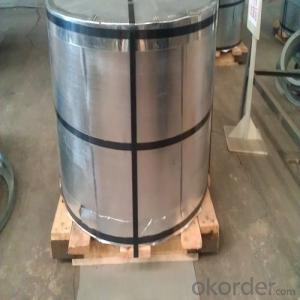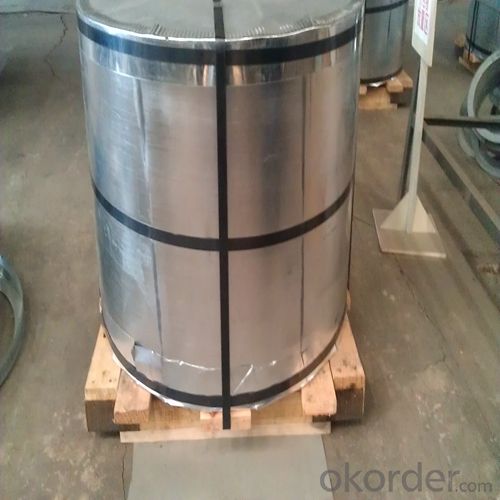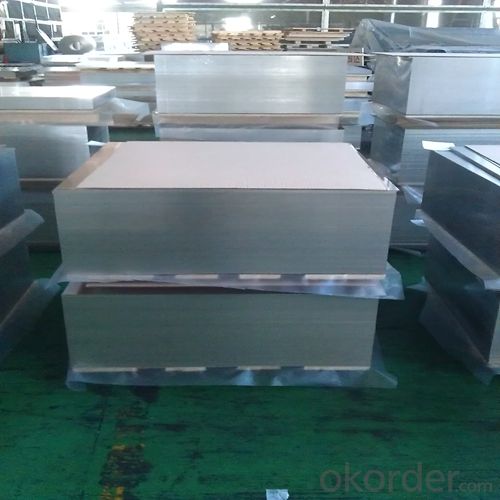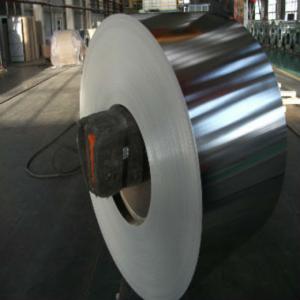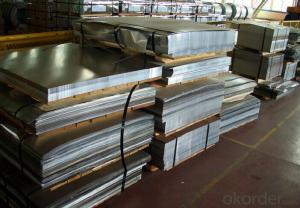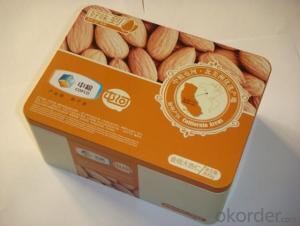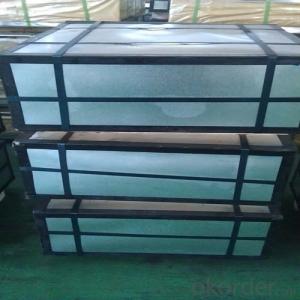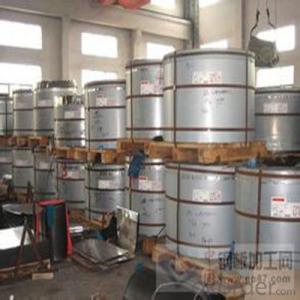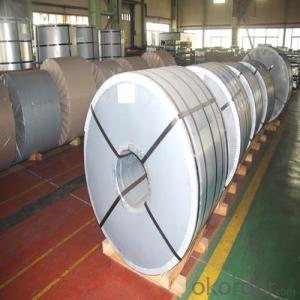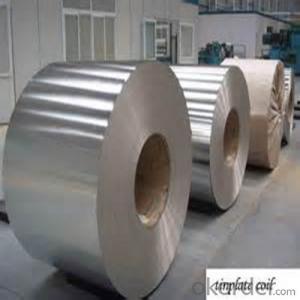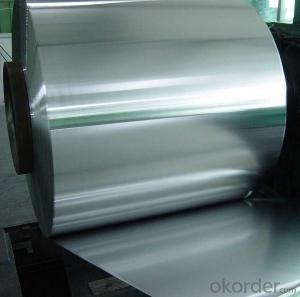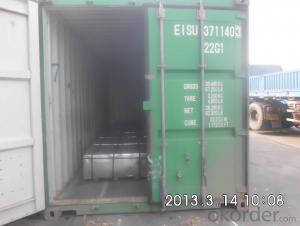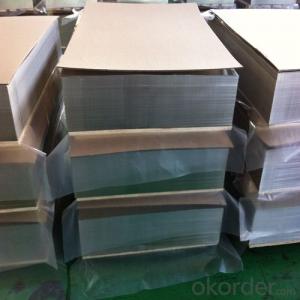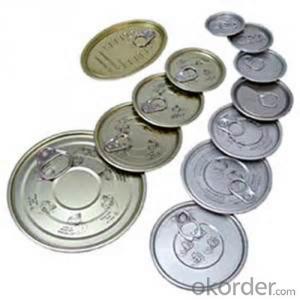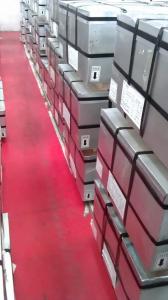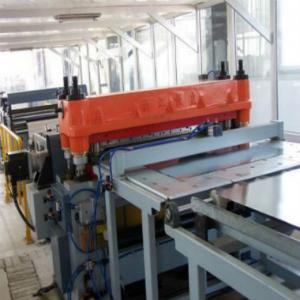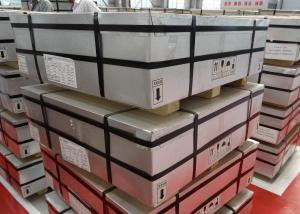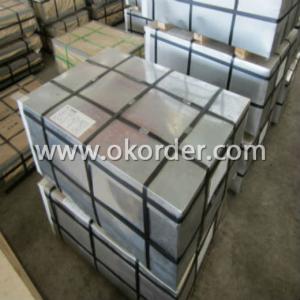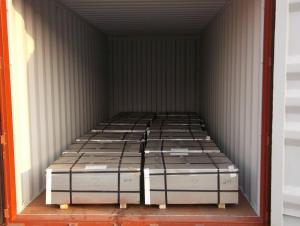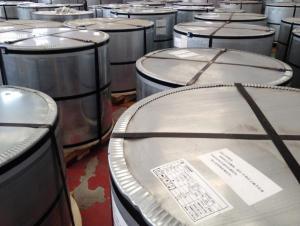Prime Quality Tinplate and Tin Free Steel for Containers
- Loading Port:
- Tianjin
- Payment Terms:
- TT OR LC
- Min Order Qty:
- 25 m.t.
- Supply Capability:
- 15000 m.t./month
OKorder Service Pledge
OKorder Financial Service
You Might Also Like
Specification
1.Structure of Prime Quality Tinplate and Tin Free Steel for Containers Description
Tin Free Steel (TFS) is thin black plate with two coats; one of metal chrome film and the other of chromium oxide. TFS is ideal for the manufacturing of crowns, container ends & shallow drawn cans etc. TFS is also known as Chromium coated steel.
2.Main Features of the Prime Quality Tinplate and Tin Free Steel for Containers
Chromium coated
TFS should be Lacquered / Coated to prevent rust in humid condition.
Internal Coating / Lacquering can be avoided in the case of TFS used to store motor oil or cooking oil.
3.Prime Quality Tinplate and Tin Free Steel for Containers Images
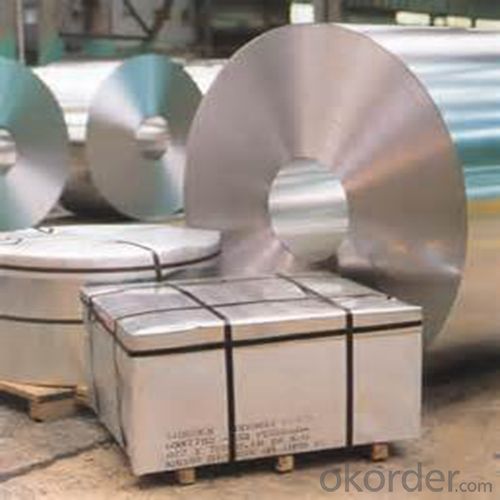
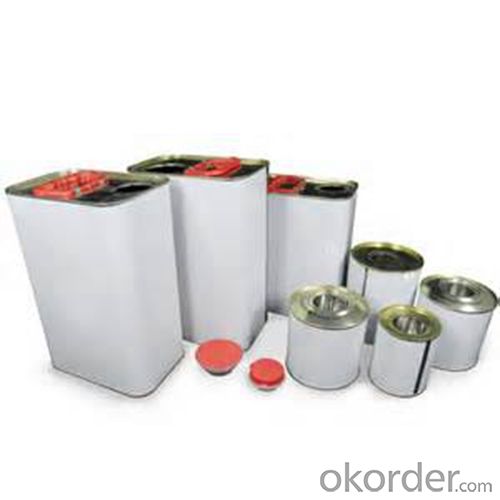
4.Prime Quality Tinplate and Tin Free Steel for Containers Specification
Specification of :
Material: MR,SPCC
Thickness:0.15mm - 0.50mm
Width: 600mm -1150mm
Temper: T1-T5
Annealing: BA & CA
Coil Inner Diameter: 508mm
Weight: 6-10 tons/coil 1~1.7 tons/sheets bundle
Oil: DOS
Surface: Finish,bright,stone,matte,silver
5.FAQ of Prime Quality Tinplate and Tin Free Steel for Containers
-What is MOQ?
Our MOQ would be 25 tons.
- Do you only have prime quality TFS ?
We can supply both prime and second quality TFS.
- Q: What are the main applications of tinplate in the pharmaceutical industry?
- Tinplate is commonly used in the pharmaceutical industry for packaging purposes. It serves as a reliable and durable material for manufacturing cans, containers, or closures for various pharmaceutical products. Tinplate provides an effective barrier against moisture, light, and oxygen, helping to preserve the integrity, stability, and shelf life of pharmaceutical drugs. Additionally, tinplate's resistance to corrosion ensures the safety and quality of the packaged medications.
- Q: How is tinplate coated for toys and games?
- Tinplate is commonly coated for toys and games using a process called electroplating, where a thin layer of tin is applied to the surface of the metal. This coating provides a protective barrier against corrosion and enhances the aesthetics of the toys and games.
- Q: What are the main applications of tinplate in the cosmetics industry?
- Tinplate is widely used in the cosmetics industry for packaging various products such as lip balms, creams, powders, and even aerosol cans. Its corrosion resistance, durability, and ability to maintain product integrity make it an ideal choice for ensuring the quality and longevity of cosmetic products. Additionally, tinplate's versatility allows for attractive and customizable designs, enhancing the visual appeal of cosmetic packaging.
- Q: How is tinplate recycled and what are its recycling rates?
- Tinplate, which is commonly used for food and beverage packaging, is recycled through a process called steel recycling. The recycling of tinplate involves collecting and separating it from other waste materials, followed by shredding, melting, and refining to produce new steel products. Tinplate has a high recycling rate, with approximately 80-90% of tinplate packaging being recycled globally. This high recycling rate is due to the fact that tinplate is a valuable material that can be easily and efficiently recycled, reducing the need for raw materials and minimizing environmental impact.
- Q: What type of paint is suitable for tinplate?
- Enamel paint is suitable for tinplate due to its durability and ability to adhere to metal surfaces.
- Q: What is the purpose of tin coating on tinplate?
- The purpose of tin coating on tinplate is to provide a protective barrier against corrosion, as tin is highly resistant to oxidation. Additionally, the tin coating enhances the appearance of the tinplate and allows for easy soldering, making it suitable for various applications such as food packaging and decorative items.
- Q: What are the regulations and standards related to tinplate packaging?
- Regulations and standards related to tinplate packaging may vary depending on the specific country or region. However, in general, tinplate packaging is subject to regulations and standards related to food safety, product labeling, and environmental concerns. These regulations ensure that tinplate packaging materials are safe for food contact and that they comply with specific guidelines for packaging materials. Additionally, there may be standards regarding the thickness, coating, and overall quality of tinplate packaging to ensure its durability and performance.
- Q: What are the main factors influencing the competitiveness of tinplate manufacturers?
- The main factors influencing the competitiveness of tinplate manufacturers include price competitiveness, quality of products, technological advancements, production efficiency, supply chain management, customer satisfaction, and adherence to environmental and safety regulations. Additionally, factors such as market demand, brand reputation, innovation, and the ability to adapt to changing market trends also play a crucial role in determining the competitiveness of tinplate manufacturers.
- Q: Can tinplate packaging be used for microwaveable products?
- No, tinplate packaging cannot be used for microwaveable products as it is a metal material and can cause sparks or fires in the microwave.
- Q: How is tinplate tested for quality control?
- Tinplate is tested for quality control through various methods including visual inspection, measurement of coating thickness, adhesion testing, and corrosion resistance testing.
Send your message to us
Prime Quality Tinplate and Tin Free Steel for Containers
- Loading Port:
- Tianjin
- Payment Terms:
- TT OR LC
- Min Order Qty:
- 25 m.t.
- Supply Capability:
- 15000 m.t./month
OKorder Service Pledge
OKorder Financial Service
Similar products
Hot products
Hot Searches
Related keywords
